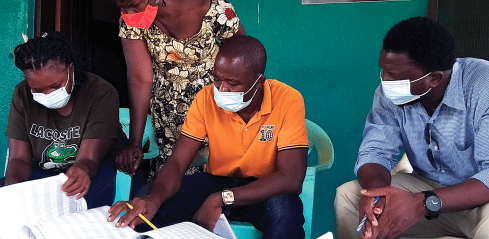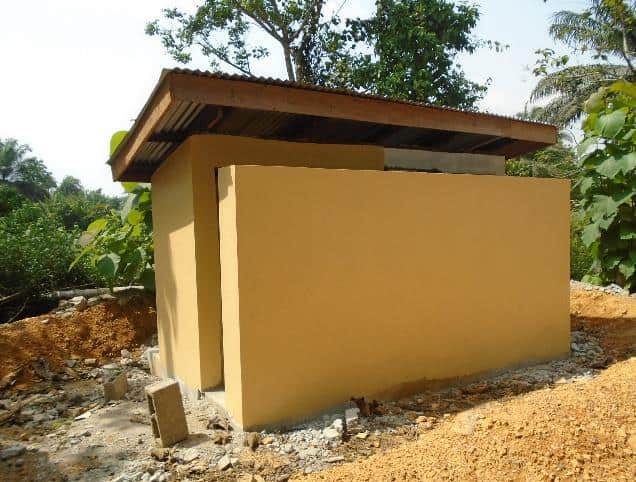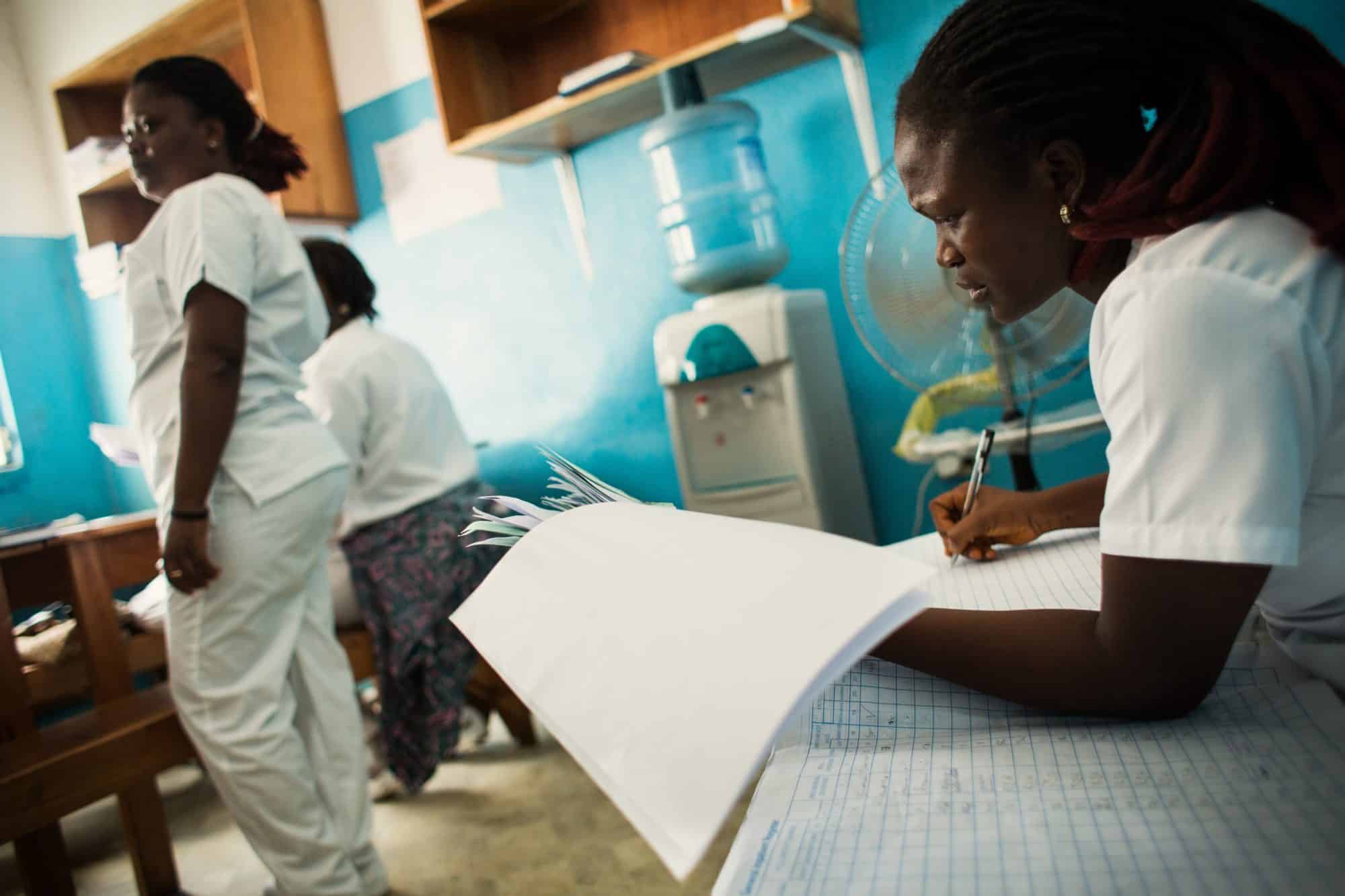JSI has been working alongside the Ministry of Health and Social Welfare (MOHSW) to strengthen the health system and improve the quality of health services in Liberia since the late 1980s in close collaboration with the Ministry of Health and Social Welfare (MOHSW). With funding from USAID and small private foundations, JSI has helped to rebuild Liberia’s post-conflict and post-Ebola health system, strengthen the health supply chain, improve the nutritional status of vulnerable populations, and build the capacity of the civil service.
Between 2014 and 2015, Liberia was devastated by an Ebola outbreak. The country’s already precarious health system was stricken—routine health service provision and use declined due the redirection of health workers to handle the outbreak, fears about contracting the virus, and health facility closures.
Building Resilience Post-Ebola
JSI’s Ebola Transmission Prevention and Survivor Services (ETP&SS) program, implemented through the Advancing Partners & Communities project, worked to mitigate the risk of resurgence of the Ebola virus disease (EVD). Survivors experience stigma and psychological complications that require specialized medical attention, such as anxiety, depression and post-traumatic stress. The program aimed to reduce stigma and ensure the effective delivery of health care and psychosocial support services in response to survivor needs in four priority counties.
A critical component of the program was working closely with the Ministry of Health and USAID partners to build health system capacity to provide specialized health services for common complications among Ebola survivors.
The ETP&SS program supported the establishment and institutionalization of the National Ebola Survivors Secretariat within the Ministry of Health, and engaged with the National Ebola Survivors Network of Liberia (NESNL) to strengthen its capacity to effectively coordinate and disseminate information to the EVD survivor population.
Through the program, JSI has helped develop a referral pathway framework to facilitate health service delivery. Other critical activities include carrying out survivor population and services mapping exercises; supporting training and mentoring of medical students, residents, and mid-level health workers; and renovating target health facilities.
Health Systems Strengthening
From 2008 – 2015, JSI managed the U.S. government’s flagship health project in Liberia, Rebuilding Basic Health Services (RBHS). In the aftermath of the country’s 14-year civil war, RBHS initially focused on rebuilding Liberia’s fragile health system. As the Ebola epidemic hit the country, however, in July 2014, JSI transitioned all activities to support the government’s Ebola response full time.
Ebola Response
During the outbreak, the MOH asked JSI to guide and support the government’s Ebola response efforts. JSI staff worked hand-in-hand with Ministry staff, helping make key decisions around training health workers in infection prevention and control, educating communities to protect themselves, streamlining logistics to keep track of the influx of personal protective and other equipment, and contact tracing. JSI helped the MOH enable communities to protect themselves and safely care for the sick before their eventual transfer to Ebola treatment units (ETUs). JSI staff actively participated on national committees responsible for coordinating case management, health worker training in infection prevention and control, social mobilization, logistics, and contact tracing.
Infection Prevention and Control
JSI also led infection prevention and control activities, distributing IPC supplies, including personal protective equipment (PPEs) to more than 95% of all health facilities across the country and training more than 8,000 health workers and health facility support staff. To ensure sustainability, JSI oversaw supportive supervision visits to facilities to confirm adherence to IPC protocols and adequate availability of IPC supplies.
To improve food security of vulnerable people living in rural Bong and Nimba counties, JSI also implemented the Liberian Agricultural Upgrading, Nutrition and Child Health (LAUNCH) project. Under this project, supplemental food rations were distributed monthly to pregnant and lactating women, as well as children under age two, using an innovative mobile technology to streamline participant registration.
Recognizing the importance of contributing more broadly to the development of human resources in a post-war environment, JSI also implemented the privately funded President’s Young Professionals Program (PYPP), which helped fill critical human resource needs across a range of ministries. Launched by H.E. President Ellen Johnson Sirleaf in 2009, PYPP trained and helped place Liberian college graduates in government roles.
Read more about our contributions to the Ebola response in Liberia.
View a photo essay, “Last Mile Distribution: Challenges on the Road to Delivering Infection Prevention and Control Supplies in Liberia,” which chronicles the transportation obstacles faced in maintaining the supply chain within the Infection Prevention and Control Activity.
Below, watch “Keep Safe, Keep Serving–Strengthening Infection Prevention in Liberia,” a short documentary film about the work of JSI staff to ensure infection prevention and control practices are standardized across the country.





